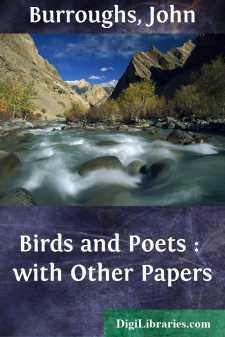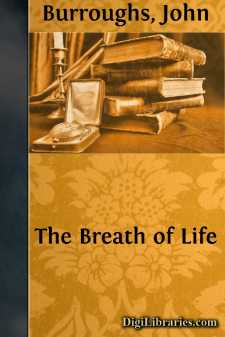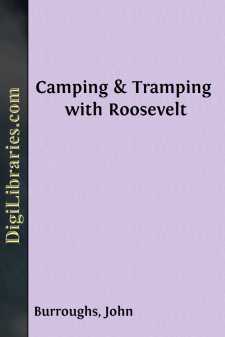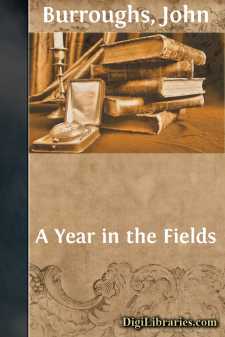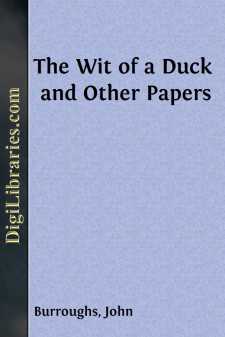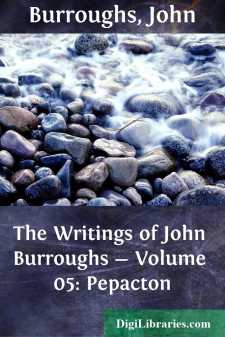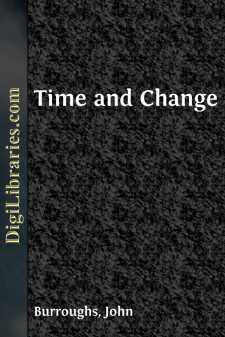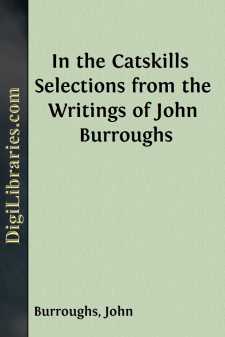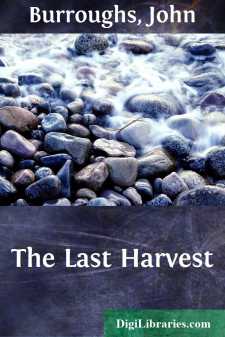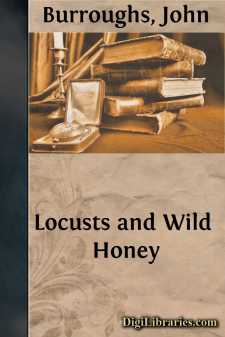Categories
- Antiques & Collectibles 13
- Architecture 36
- Art 48
- Bibles 22
- Biography & Autobiography 813
- Body, Mind & Spirit 142
- Business & Economics 28
- Children's Books 14
- Children's Fiction 11
- Computers 4
- Cooking 94
- Crafts & Hobbies 4
- Drama 346
- Education 46
- Family & Relationships 57
- Fiction 11829
- Games 19
- Gardening 17
- Health & Fitness 34
- History 1377
- House & Home 1
- Humor 147
- Juvenile Fiction 1873
- Juvenile Nonfiction 202
- Language Arts & Disciplines 88
- Law 16
- Literary Collections 686
- Literary Criticism 179
- Mathematics 13
- Medical 41
- Music 40
- Nature 179
- Non-Classifiable 1768
- Performing Arts 7
- Periodicals 1453
- Philosophy 64
- Photography 2
- Poetry 896
- Political Science 203
- Psychology 42
- Reference 154
- Religion 513
- Science 126
- Self-Help 84
- Social Science 81
- Sports & Recreation 34
- Study Aids 3
- Technology & Engineering 59
- Transportation 23
- Travel 463
- True Crime 29
John Burroughs
John Burroughs (1837-1921) was a renowned American naturalist and essayist, celebrated for his vivid writings on nature and rural life. His works, often reflecting his deep love for the natural world, contributed significantly to the American conservation movement. Burroughs was a contemporary of other notable naturalists such as John Muir and Henry David Thoreau, and his essays helped popularize nature writing in the late 19th and early 20th centuries.
Author's Books:
Sort by:
by:
John Burroughs
I BIRDS AND POETS "In summer, when the shawes be shene,And leaves be large and long,It is full merry in fair forestTo hear the fowlés' song.The wood-wele sang, and wolde not cease,Sitting upon the spray;So loud, it wakened Robin HoodIn the greenwood where he lay." It might almost be said that the birds are all birds of the poets and of no one else, because it is only the poetical...
more...
by:
John Burroughs
I I When for the third or fourth time during the spring or summer I take my hoe and go out and cut off the heads of the lusty burdocks that send out their broad leaves along the edge of my garden or lawn, I often ask myself, "What is this thing that is so hard to scotch here in the grass?" I decapitate it time after time and yet it forthwith gets itself another head. We call it burdock, but...
more...
by:
John Burroughs
INTRODUCTION This little volume really needs no introduction; the two sketches of which it is made explain and, I hope, justify themselves. But there is one phase of the President's many-sided character upon which I should like to lay especial emphasis, namely, his natural history bent and knowledge. Amid all his absorbing interests and masterful activities in other fields, his interest and his...
more...
by:
John Burroughs
In the town of Roxbury, among the western Catskills, was born April 3, 1837, John Burroughs. The house in which he first saw the light was an unpainted, squarish structure, only a single story high, with a big chimney in the middle. This house was removed a few years later, and a better and somewhat larger one, which still stands, was built in its place. The situation is very pleasing. Roundabout is a...
more...
by:
John Burroughs
JOHN BURROUGHS John Burroughs was born April 3, 1837, in a little farmhouse among the Catskill Mountains. He was, like most other country boys, acquainted with all the hard work of farm life and enjoyed all the pleasures of the woods and streams. His family was poor, and he was forced at an early date to earn his own living, which he did by teaching school. At the age of twenty-five he chanced to read...
more...
by:
John Burroughs
PEPACTON I A SUMMER VOYAGE WHEN one summer day I bethought me of a voyage down the east or Pepacton branch of the Delaware, I seemed to want some excuse for the start, some send-off, some preparation, to give the enterprise genesis and head. This I found in building my own boat. It was a happy thought. How else should I have got under way, how else should I have raised the breeze? The boat-building...
more...
by:
John Burroughs
THE LONG ROAD I The long road I have in mind is the long road of evolution,—the road you and I have traveled in the guise of humbler organisms, from the first unicellular life in the old Cambrian seas to the complex and highly specialized creature that rules supreme in the animal kingdom to-day. Surely a long journey, stretching through immeasurable epochs of geologic time, and attended by...
more...
by:
John Burroughs
INTRODUCTION The eight essays in this volume all deal with the home region of their author; for not only did Mr. Burroughs begin life in the Catskills, and dwell among them until early manhood, but, as he himself declares, he has never taken root anywhere else. Their delectable heights and valleys have engaged his deepest affections as far as locality is concerned, and however widely he journeys and...
more...
by:
John Burroughs
EMERSON AND HIS JOURNALS I Emerson's fame as a writer and thinker was firmly established during his lifetime by the books he gave to the world. His Journals, published over a quarter of a century after his death, nearly or quite double the bulk of his writing, and while they do not rank in literary worth with his earlier works, they yet throw much light upon his life and character and it is a...
more...
by:
John Burroughs
THE PASTORAL BEES The honey-bee goes forth from the hive in spring like the dove from Noah's ark, and it is not till after many days that she brings back the olive leaf, which in this case is a pellet of golden pollen upon each hip, usually obtained from the alder or the swamp willow. In a country where maple sugar is made the bees get their first taste of sweet from the sap as it flows from the...
more...


